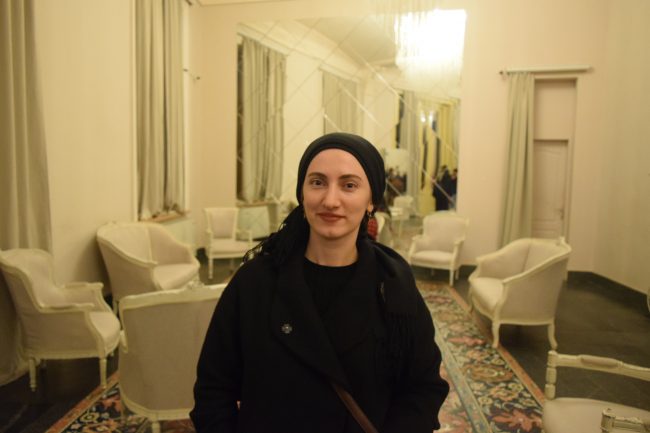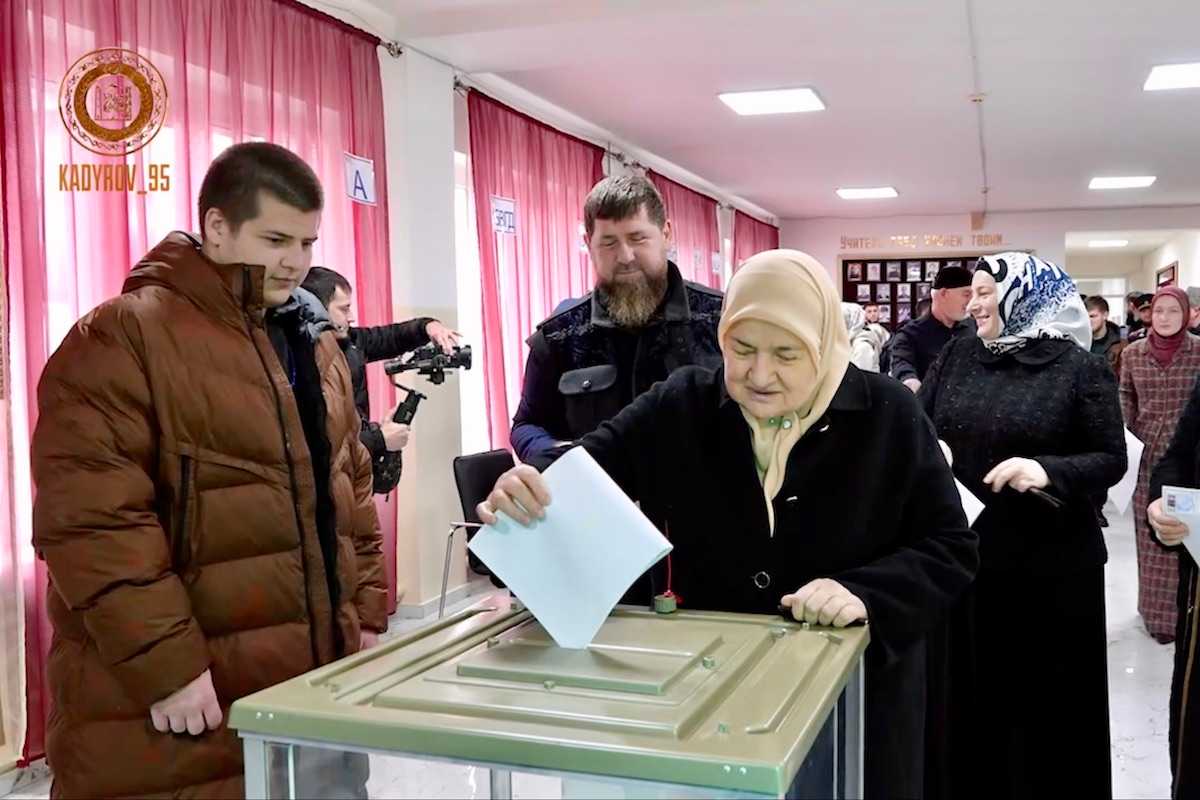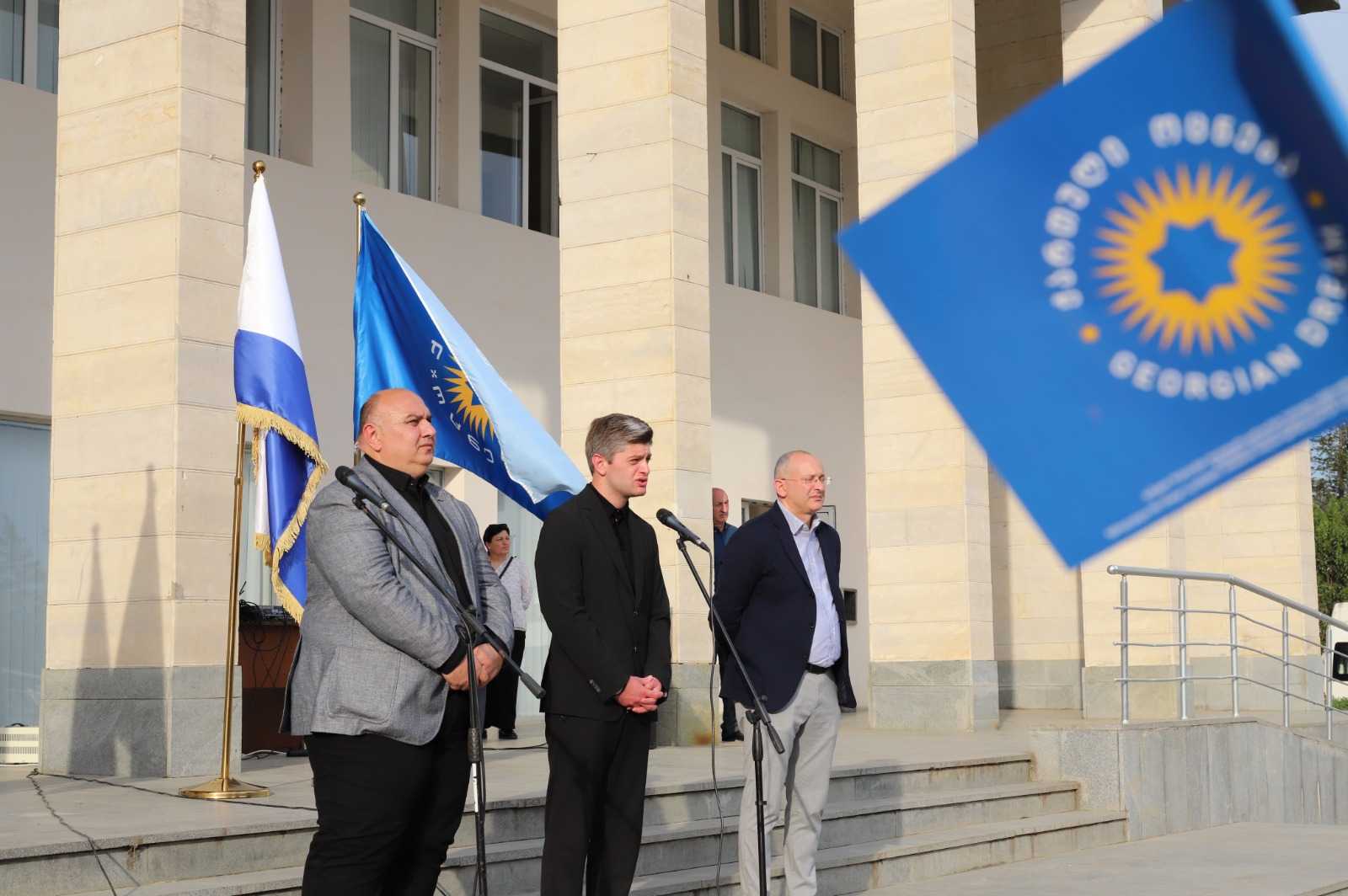

Luiza Mutoshvili, 27, Pankisi Valley.
 ‘Five years ago, I started a job as a teacher at the public school in Duisi, Pankisi Valley, which completely changed my life. The goal of my teaching programme was to overcome the language barrier in regions with ethnic minorities. I’m ethnically Kist myself, and since Georgian is not my native language, I was well familiar with the language barrier problem.’
‘Five years ago, I started a job as a teacher at the public school in Duisi, Pankisi Valley, which completely changed my life. The goal of my teaching programme was to overcome the language barrier in regions with ethnic minorities. I’m ethnically Kist myself, and since Georgian is not my native language, I was well familiar with the language barrier problem.’
 ‘I started teaching Georgian at the Duisi public school, in the Russian sector. I taught Georgian to refugee children who had come to Pankisi during the war in Chechnya. Now I’m an assistant to the history teacher.’
‘I started teaching Georgian at the Duisi public school, in the Russian sector. I taught Georgian to refugee children who had come to Pankisi during the war in Chechnya. Now I’m an assistant to the history teacher.’
The ‘Pankisi Crisis’ and beyond
‘I travelled a long road to get to where I am today. Back when I was in school in the 2000s, when there was a “Pankisi crisis”, it was a difficult period for the whole country and we, the young, never had any opportunities. The only bright spot for pupils, when we could hear about something different, came from the Kakheti Regional Development Foundation (KRDF). We could study something new there, meet interesting people.’
‘This organisation was the first to bring “different topics” for discussion among young people in Pankisi — human rights, gender, etc. We had no idea about these topics. My family wasn’t really excited when I started to attend trainings on gender issues. They would say that some “soroselebi” (American philanthropist George Soros people) were messing with our brains.’
‘I started to work with the KRDF in 2013. Now our main goal is to mend collapsed bridges between Kist and Georgian people, which have remained broken since the crisis period. We try to engage young people in different activities; we also help women receive an education and help them develop their own business projects.’
‘Of course there is a huge difference between public attitudes now and back then. When we were in school, there was no electricity, no natural gas, no information was reaching Pankisi Valley. Georgian law practically did not apply in the valley. It was closed off, and the drug business was booming in such an environment’.
‘Of course it was not only the fault of local residents. This was encouraged by the state. In such a vacuum, there was not much but school programmes that could broaden our worldview.’
‘Young people today are luckier in this regard. They are much more progressive and different. They try to change their environment for a better future.’
Persistent stigma
‘Unfortunately, we’ve been unable to shake this stigma, which Pankisi has borne ever since the crisis period. The most recent episode was the special operation on 22 November 2017, when you would hear “Pankisi” really often and sometimes unfairly in a negative context. The media and the state played a large role in this. Irresponsible comments and coverage had a negative influence on the image of the valley.’
‘When I was reading some of the comments on Facebook I was crying; there was such aggression coming from our friends, our fellow citizens. But I cannot blame any of them. There were many factors which contributed to their attitudes towards Pankisi.’
‘To be honest, for me as an ordinary citizen, an ordinary person from Pankisi, if my brother was a part of some criminal group, it wouldn’t matter that he is my brother, he must be held responsible. No one is ever happy if any of us has something to do with such situations.’
‘As for the Kists — during our life together with Georgians we have never committed any acts against the state. I am proud to say we are one of the most well-integrated nations in Georgian society.’
‘We were never happy when young people left to fight in Syria. Mothers from Pankisi very often appealed to the Ministry of Internal Affairs to strengthen their control and prevent their sons from going abroad, but unfortunately, despite all these efforts, the reality is such that in the end even a couple of minors crossed the border, and it was so painful for the mothers. Both of the minors died in Syria.’
Complexity of the problem
‘There are no one or two reasons why Georgian citizens go to fight in Syria. This is a multi-layered problem. You often hear that the main reason young people leave Pankisi was their economic conditions, but I don’t agree with that. If you come to Pankisi and see for yourself, you will understand that unlike other regions, people live better here.’
‘This might have been the reason in individual cases, but not the only reason or even the main one. There were other factors too, like propaganda from the Islamic State, anti-Russian narratives, identity, etc.’
‘Despite the fact that the final decisions were up to the individuals, we have to discuss everything that led them to make such a choice, which hasn’t been beneficial for us, or our country or for many people.’
The role of women
‘The role of women in solving this and other problems is very important. Nowadays we hear a lot about feminism, gender, and women’s activism, which is very important. Although I see myself as a traditionalist, it never interfered with my being a feminist.’
‘I would be lying if I said you’ll meet a lot of feminists in Pankisi. I often call for the girls to always be active; to never ignore problems and challenges that each of them is facing, because the example of one person is a great stimulus for the other girls.’
‘I was motivated by this idea in 2014 when I participated in local elections. It was unimaginable for the people of pankisi; having a young woman in politics. It was the first time in the life of our community that a young woman dared to loudly declare that she desires an active political life.’
‘Feedback from my relatives, friends, the community, the village, was not positive. I would hear every day — “what do you want?”, “You know you’re going to lose, so why don’t you stop?” Family support is very important in such moment, especially from men. If my father didn’t support me, I wouldn’t have become the person I am today.’
‘Considering the prevailing attitudes around this issue, I never imagined I had any chance to win this election. I knew I was playing a game I had already lost, but what was important for me was how I would lose, what results I would have. I was really afraid to lose by a large margin.’
‘In the end, in a conservative community where the authorities still play a large role, and all of my competitors were men with a lot of authority, I was only 12 votes away from winning.’
‘Since then I always say that I didn’t lose the election, because I believe that I gave encouragement to the girls. The stereotype — that girls don’t have a chance to win — collapsed.’
‘I think people need to take risks. I had to go through incredible difficulties during the election, but I don’t regret my decision to run. At least one person should dare to do it, we shouldn’t be afraid to take the first steps. They should overcome and should be strong, and the path to this lies through education. This is what I believe in: education brings independence.’









